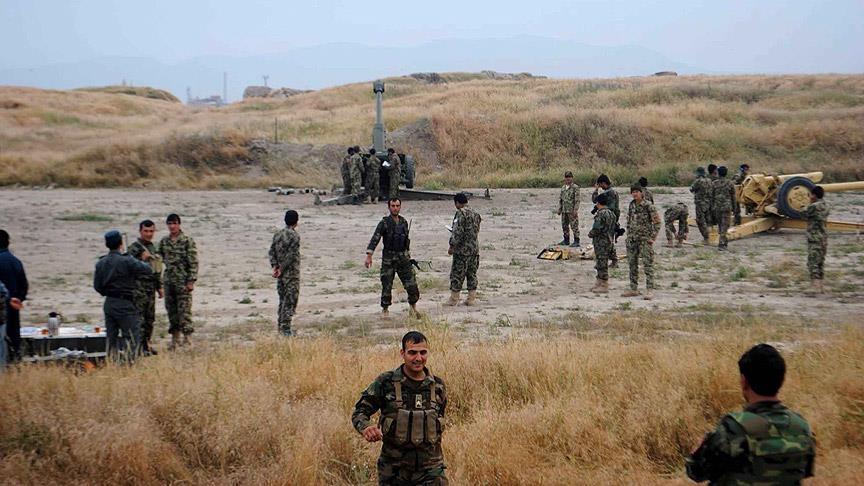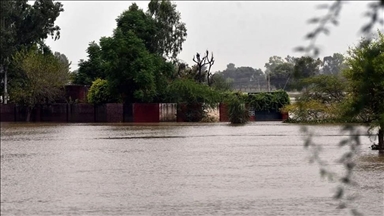
By Shadi Khan Saif
KABUL, Afghanistan
Despite the fact that the Afghan Taliban’s swift takeover of northern Kunduz city, considered Afghanistan’s gateway to Tajikistan, lasted only for two days, the deadly episode has exposed the vulnerabilities of Afghan forces and the vision of its political leadership, analysts say.
On Thursday, Afghan officials claimed that security forces regained control of Kunduz city following an overnight counter-attack. The Afghan Defense Ministry said that Afghan forces killed 150 militants and wounded 90 others during the operation launched Wednesday night after reinforcements, breaking through roadblocks, reached Kunduz from the neighboring Baghlan province. Taliban sources, however, deny the government’s claim of retaking the city and said the militant group was still in control.
The fighting is on and off in small scale but the siege has reportedly ended.
Taliban had seized the strategic city of Kunduz in northern Afghanistan and its outlaying districts after 14 hours of intense fighting on Monday.
While the control of city remains disputed with each side claiming control, the fact that the militants were able to overrun the capital of Kunduz province on the day the Kabul government completed its first year in office made it an even more symbolic defeat of the Afghan leadership, analysts said.
Also, what surprised most people was the fact that the Taliban had achieved the strategic victory in the relatively peaceful northern parts of the country.
Shockwaves from Kunduz were felt deeply across the country as memories of Taliban rule and the 1980s civil war haunted war-weary Afghans.
Aminullah Habibi, an Afghan security analyst, told Anadolu Agency that the Kunduz debacle was more of a political defeat than a military one.
“There was a clear lack of coordination and command there [in Kunduz]; the government in Kabul and the one in Kunduz seemed to have terribly lost the political will to deal with growing militancy in the north, which ultimately resulted in this disgrace,” Habibi said.
Propaganda war
The militant group’s victory in Kunduz, though only for two days, must have given the desperate new Taliban supreme leader, Mullah Akhtar Mansoor, a much needed clout over his fighters amid a crisis of leadership following the death of ex-honcho Mullah Omar, Habibi said.
Moreover, since the Kunduz attack began, Taliban’s propaganda machine has been in full swing with a number of their spokesmen continuously issuing victory statements to the local media and updating their social media pages with visuals from the frontline.
On the media front, the Kabul government remained on the back foot during the first two days, Tuesday and Wednesday. On Thursday, President Mohammad Ashraf Ghani spoke to the media with relative confidence and vowed to ensure the writ of the government in each and every corner of the country.
Before overrunning the provincial capital, the Taliban made similar moves into the far away districts like Imam Sahib, Qala-e-Zaal and Dasht-e-Archi. Habibi argued that it was hard to believe that the government did not see the offensive coming.
Two months ago, Vice President Abdul Rasheed Dostum announced that the militants were using Kunduz province as their command-and-control center in the north of the country.
Dostum, who remained on the frontline in neighboring Faryab and Badghis provinces for weeks, said that Kunduz was the militant gorup's center where a number of foreign militants, including Uzbekistanis, Chechens and Pakistanis were allegedly present and planning major attacks.
Ethnic fault lines exposed
Many people in Afghanistan have been disappointed by the Kunduz episode. They are shocked that the Taliban – a group supposedly facing internal split-- had the capacity to overrun Kunduz, a provincial capital and the fifth largest city of Afghanistan.
Some even took to the streets in Kabul on Thursday morning against the government’s failure to curtail militancy in Kabul. Participants of the rally, organized by Jamiat-e-Islami Afghanistan, chanted slogans against the government, warning that fuelling ethnic violence in the north would lead to further disaster.
Although Kunduz is known to be a Pashtun-majority population, it is surrounded by provinces with a majority of Tajik and Uzbek populations; also ethnic Tajiks associated with former warlords and militia commanders have been in power here since the fall of the Taliban in November 2001.
Aashiqullah Yaqoob, a senior journalist and political analyst, said that the people of Kunduz, particularly the Pashtun population had serious grievances, which might fuel rebellion against the government.
“There is no denial about the existence of militancy in Afghanistan but tracing back its roots you would see it started during the anti-Soviet resistance in the 1980s, and in the case of Kunduz, a segment of the society has been victimized by local commanders for years; they have been killed, their property seized and even women abducted; such things ultimately benefit the enemies of the nation,” he said.
Leaders addressing the rally in Kabul on Thursday vowed to fight against the Taliban in the 1990s styled "jihad". On the same day, President Ghani said in his remarks that the will of the people for the defense of their motherland was welcome but the use of arms could not be allowed.
Habibi agreed that militias formed to counter the militancy had backfired in certain areas on various occasions. Commenting on the grievances of local people against the local commanders, he said that the government must take measures to properly regulate such militia commanders. “But this shouldn’t be used as an excuse [by the Afghan government] to let the enemy overrun parts of the country,” the analyst said.



